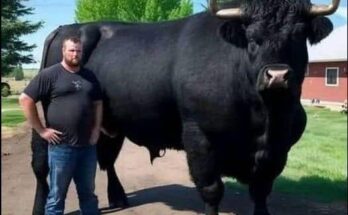The discussion surrounding the participation of transgender athletes in women’s sports has gained momentum, particularly with tech entrepreneur Elon Musk aligning himself with author JK Rowling in advocating for substantial modifications to the regulations governing transgender women’s involvement in competitive athletics. The focal point of this debate has been Valentina Petrillo, a transgender Italian Paralympic athlete competing in women’s events. Both Musk and Rowling contend that Petrillo’s participation, along with that of other transgender athletes, poses an unfair advantage to biological women.
Elon Musk, known for his willingness to engage in public discourse, articulated his position through a series of tweets, asserting that the inclusion of transgender women in female sports categories is “unfair to real women.” He urged the International Olympic Committee (IOC) to implement a rule that would bar transgender women from competing in women’s sports. Musk clarified that his stance is not rooted in discrimination but rather in the pursuit of fairness within athletic competition. In his messages, he stated, “The Olympics should introduce a transgender exclusion rule to safeguard fairness in women’s sports. It is unjust that biological differences, which provide transgender athletes with a competitive advantage, are overlooked. It is unfair to real women who have dedicated their lives to training only to compete against athletes with a biological edge.”
JK Rowling, renowned for her Harry Potter series, has been outspoken regarding her perspectives on gender identity and women’s rights. She has consistently argued that permitting transgender women to compete in female categories compromises the integrity of women’s sports. Rowling maintains that biological differences—such as muscle mass, strength, and stamina—afford transgender women an inherent advantage, even post-transition.
Rowling has consistently championed policies aimed at safeguarding female athletes and preserving the integrity of women’s sports. In her remarks regarding the case of Valentina Petrillo, Rowling emphasized, “Women’s sports were established to provide women with an equitable platform, and permitting biological males to compete jeopardizes the hard-fought achievements of women.”
With Musk now aligning with Rowling, their united stance is drawing increased attention to this issue on a global scale.
At the heart of this controversy is Valentina Petrillo, a transgender athlete who transitioned from male to female in her 40s and has since participated in women’s track events. Petrillo, who is visually impaired, has taken part in various international competitions, including the Paralympics, igniting intense debates about the fairness of allowing transgender athletes in women’s sports categories.
Critics, including Musk and Rowling, contend that despite undergoing hormone therapy and transitioning, transgender women may still possess certain physical advantages that could render competition inequitable. They advocate for the establishment of separate categories or new regulations to uphold the integrity of women’s sports.
Conversely, Petrillo has highlighted the significance of inclusion and the necessity for society to accept transgender athletes. In a prior interview, she stated, “Competing in sports is an integral part of my identity. Everyone has the right to compete and express their true selves. Excluding transgender women from sports is detrimental and unwarranted.”
As the discourse intensifies, the International Olympic Committee (IOC) and various sporting organizations are experiencing increased pressure to tackle the matter at hand. Presently, the IOC permits transgender women to participate in women’s events, provided they adhere to specific hormone-level criteria. Nevertheless, critics such as Musk and Rowling contend that these measures are inadequate, as biological advantages persist even following hormone therapy.
The comments made by Musk and Rowling have reignited demands for the IOC to reassess its regulations and consider the establishment of new rules that would bar transgender women from competing in female categories entirely. Some propose the introduction of a distinct category for transgender athletes, while others call for more stringent guidelines to safeguard the integrity of women’s sports.
As anticipated, the involvement of prominent figures like Musk and Rowling has elicited divided responses. Advocates for transgender inclusion in sports assert that transgender athletes should not face exclusion based on their identity, emphasizing that inclusion is fundamentally a matter of equality and human rights. They view the positions taken by Musk and Rowling as discriminatory and detrimental to transgender individuals.
Conversely, numerous athletes, feminists, and public figures have rallied in support of Musk and Rowling, arguing that the existing policies are indeed unjust to biological women and pose a threat to the advancements made in women’s sports over the years.
The discussion surrounding transgender athletes in women’s sports remains unresolved, and with influential voices like Elon Musk and J.K. Rowling contributing to the dialogue, the issue is gaining further traction. As the International Olympic Committee confronts mounting pressure, the future of sports policies may be on the verge of transformation. Whether this will result in the exclusion of transgender women from women’s events or the establishment of new categories is yet to be determined, but it is evident that the conversation regarding fairness and inclusion in sports is intensifying.



